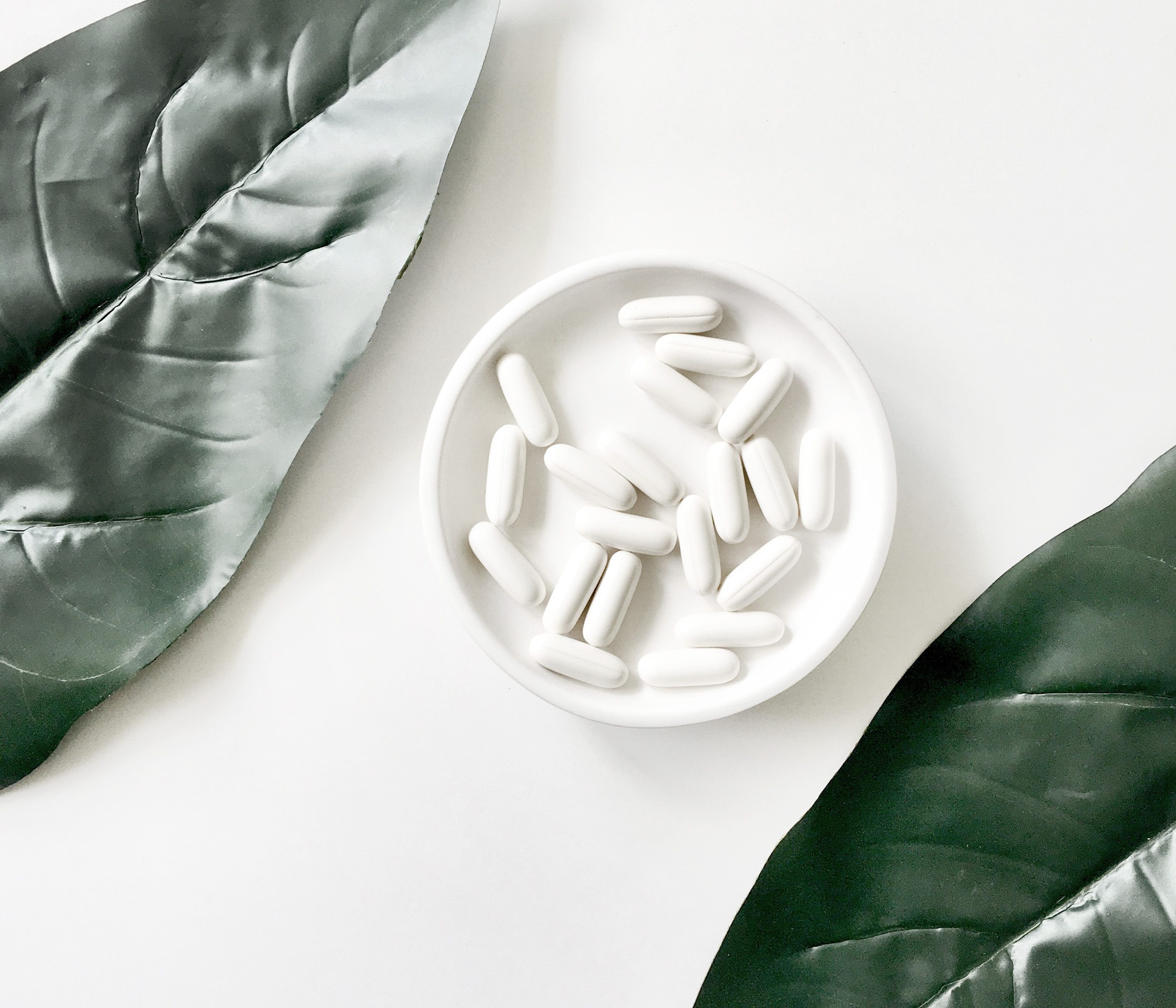Supplements are all the rage right now — and for a good reason.
While in a dream world, we would be getting all of our essential vitamins, minerals, and nutrients from food sources, the reality is that most foods are depleted or lack entirely the things we need.
The solution to this is supplementation. And while supplements can be beneficial to your health, not all supplements are made equal.
Whether you’re supplementing for yourself or for your clients, it’s essential to understand what supplementation is, how supplements are regulated, health claims, and how to tell a good supplement from a bad one.
YOUR ULTIMATE SUPPLEMENTATION GUIDE: THE GOOD, THE BAD, AND THE UGLY
We cannot overemphasize the importance of high-quality supplements.
Most of them contained cheap fillers like powdered rice, asparagus, and houseplants. For people with allergies, these substances can be dangerous.
How do supplement manufacturers get away with this? Dietary supplements are exempt from the strict regulations applied to the prescription drug industry.
The trouble is that many people spend hundreds and even thousands of dollars on supplements thinking that they will improve their health, while they are actually doing little if any, good.
To better understand this, let’s first get a better understanding of what a supplement is.
WHAT IS A NUTRITIONAL SUPPLEMENT
A dietary or nutritional supplement is a product that contains vitamins, minerals, herbs or other botanicals, amino acids, enzymes, and other ingredients intended to supplement the diet.
The U.S. Food and Drug Administration (FDA) has special labeling requirements for dietary supplements and treats them as foods, not drugs.
WHAT MAKES A NUTRITIONAL SUPPLEMENT?
For a product to qualify as a nutritional supplement, it must meet four criteria:
- It is a product intended to supplement the diet and contains one or more of the following: vitamins, minerals, herbs or other botanicals, amino acids, or any combination of the above ingredients.
- It is intended to be taken in tablet, capsule, powder, soft-gel, gelcap, or liquid form.
- It is not represented for use as a conventional food or as a sole item of a meal or the diet.
- It is labeled as being a dietary supplement.
HOW ARE SUPPLEMENTS REGULATED?
The FDA regulates dietary supplements under a different set of regulations than those covering conventional foods and drug products (prescription and over-the-counter).
Under the Dietary Supplement Health and Education Act of 1994 (DSHEA), the dietary supplement manufacturer is responsible for ensuring that a supplement is safe before it is marketed.
The FDA is responsible for taking action against any unsafe dietary supplement product after it reaches the market.
DSHEA grants the FDA the authority to establish Good Manufacturing Practices (GMP), which are regulations governing the preparation, packing, and holding of dietary supplements under conditions that ensure their safety.
These regulations are to be modeled after current good manufacturing practice regulations in effect for the rest of the food industry.
SUPPLEMENTATION HEALTH CLAIMS
Food manufacturers use health claims as statements that a food product has certain health benefits.
The FDA carefully regulates these and strictly enforced. Not just anything can be stated on a food label advertising a health claim.
Scientific evidence must be present to support the health claim.
Some examples of health claims include:
- Dietary saturated fat and cholesterol and coronary heart disease.
- Folate and neural tube defects.
- Soy protein and plant sterols and coronary heart disease.
- Sodium and hypertension.
- Calcium and osteoporosis.
STRUCTURE-FUNCTION CLAIMS OF SUPPLEMENTS
Structure-function claims describe the role of a nutrient or dietary ingredient intended to affect normal structure or function in humans.
For example, “Calcium builds strong bones.” In addition, they may characterize how a nutrient or dietary ingredient acts to maintain such structure or function.
As an example, “Fiber maintains bowel regularity,” or “Antioxidants maintain cell integrity,” or they may describe general well-being from consumption of a nutrient or dietary ingredient.
Structure-function claims may also describe a benefit related to a nutrient deficiency disease, like vitamin C and scurvy, as long as the statement also tells how widespread such a condition is in the United States.
That manufacturer is responsible for ensuring the accuracy and truthfulness of these claims as they are not pre-approved by the FDA. They must be truthful and not misleading.
RED FLAGS OF NUTRITION QUACKERY
Please be aware of the red flags of nutrition quackery on product labels including, but not limited to, statements such as:
- Time-tested: If this were true, such findings would be widely publicized and accepted by health professionals.
- Satisfaction guaranteed: Marketers may make generous promises, but consumers won’t be able to collect on them.
- Quick and easy fixes: Even proven treatments take time to be effective.
- One product does it all – No one product can treat such a diverse array of conditions.
- Natural: Natural is not necessarily better or safer; any product that is strong enough to be effective is strong enough to cause side effects.
- Paranoid accusations: For example, “Revolutionary product based on ancient medicine”. These strongly suggest that a company is solely in the market to make money.
- Personal testimonials: Hearsay is the weakest form of evidence.
- Meaningless medical jargon: Phony terms hide the lack of scientific evidence.
READ YOUR LABELS
Remember that manufacturers may describe the supplement’s effects as “structure or function” of the body or the “well-being” achieved by consuming the dietary ingredient.
Be sure to check for the following statement on the label, “This statement has not been evaluated by the Food and Drug Administration. This product is not intended to diagnose, treat, cure, or prevent any disease.”
In addition, it is important to remember that unlike health claims, nutritional support statements need not be approved by the FDA before manufacturers market products bearing the statements.
However, the agency must be notified no later than 30 days after a product that bears the claim is first marketed.
HOW TO CHOOSE A HIGH-QUALITY SUPPLEMENT
Encourage your clients (and yourself) to check for the following signs of a high-quality supplement:
- Manufactured at a Good Manufacturing Practices (GMP) facility.
- List a Certificate of Analysis for each ingredient.
- Avoid other ingredients like:
- Fillers – Useless material added to tablets or capsules to increase their bulk.
- Binders – Substances that give a cohesive quality to powders material.
- Coatings/Lubricants – Useless material added in small amounts to prevent tablets from sticking to the molds.
- Colorings – Food dyes.
- Flavorings – Examples are sugar, natural flavoring, and sorbitol.
- Look for ingredients that are clinically proven to boost health.
- Avoid supplements that are at a low price point that’s too good to be true.
- Pay attention to the company’s integrity and reputation.
- Try to choose supplements derived from natural sources and whole foods rather than synthetic chemicals.
IN CONCLUSION
Dietary and nutritional supplements are regulated as foods, not drugs, so there could be quality issues in the manufacturing process. So be aware! (Which is why we put together this ultimate guide!)
Remember that supplements can interact with prescription or over-the-counter medicines, and with other supplements.
And while it seems unfair to the consumer, don’t forget that “natural” does not necessarily mean safe or effective. If you see “natural”, run the other way as fast as you can!
And most importantly, always consult with your healthcare provider before starting a supplement, especially if you are pregnant, nursing, or considering giving a supplement to a child.
Hopefully, this article opened your eyes to some new insights about supplementation. And while supplementing can be extremely helpful, it can also be harmful if you use the wrong products.
What is your favorite clean brand of supplements? Share it with us in the comments!


+ show Comments
- Hide Comments
Free Resources
Take A Look at the latest from ITN:
Courses
add a comment